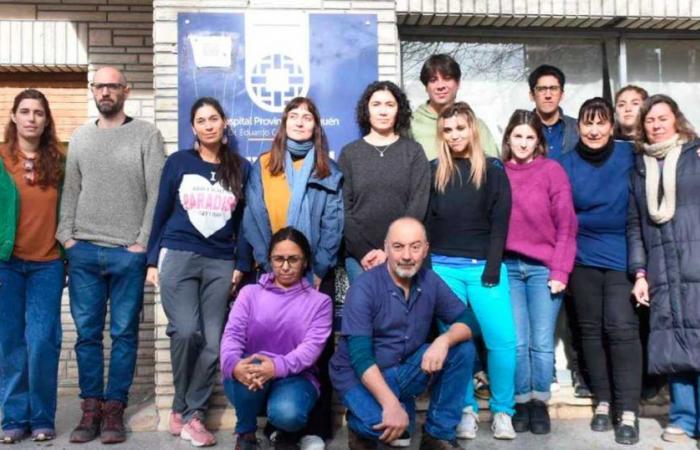After the claim of mental health workers at the Heller hospital, who reported that There was a man living in the establishment for a year and a half because he had nowhere to go.the solution provided by the Neuquén Ministry of Health was not to manage a support network that would support him outside the building, but to move him to Castro Rendón, where There is another user who has remained in the acute hospitalization for six years.
Paulina Rodríguez, a graduate in therapeutic accompaniment and member of the Castro Rendón mental health team, explained that both people They do not have clinical criteria that justify these prolonged residencies.
The purpose of hospitalization is to “compensate for their baseline condition” and for them to continue treatment outside of a hospital, living in the community, but in an assisted manner, which is what the mental health law establishes to banish the logic of the old asylums.
He said that the decision to move the young man who was at Heller was “arbitrary” and that the team already knows him because he stayed there for a season. “They are moving him from place to place, unfortunately he lives in a hospital,” he assured.
«They should not be in an acute hospitalization ward. They should be in an intermediate facility, which is what we are asking for, that there be accommodation devices for this type of people who need this treatment, because It’s not that they can be alone. They still need accompaniment, but it does not necessarily have to be in an inpatient setting or in a hospital with meal times, and without personal space,” he claimed.
These assistance supports – therapeutic companions, financial contributions for housing and food – would give them a chance at a free life. With this answer “housing problems are resolved with hospitalizations.”
The law, the professional noted, “mentions several types of intermediate devices, for example halfway houses or assisted living, these types of homes were not made here. At some point there was talk of making an agreement with housing to provide houses for this, that did not happen.”
And he added: «in 2015 when the province adhered to the law it was the day centers, which are also intermediate, but outpatient, approach devices. There were three of these day centers here in the city and a month ago they closed the one in the western area, which means that instead of generating more intermediate devices they are closing.
That’s why they are called “social internments.” “In reality they do not have a clinical criterion to be hospitalized, but the reality is that they have no place to live, nor any income from any economic contribution to be able to support themselves outside, nor home or therapeutic companions for their daily lives,” he noted.
He insisted that the responsibility not only lies with Health but with the Ministry of Government, which channels these accompaniments. “It’s not just getting them out of the hospital,” she said.
The service mentioned that they currently also have a shortage of Social Work professionals. There are charges that are not covered.
Regarding the availability of mental health beds in Castro Rendón, the most complex hospital in the province, Rodríguez specified that there are ten of which three are reserved for women with problematic substance use problems. It is the only space, since the one that was launched at the end of last year is outpatient, and not for moments of acute crisis or detoxification.









